Explainer: How and which Swedish products should be boycotted by Muslims?
By Ivan Kesic
The anger and outrage over the recurring incidents of desecration of the Holy Quran in Sweden has reached the boiling point, with angry protests rocking the Muslim world in recent weeks.
Some countries have already expelled Swedish envoys, some have declared their unwillingness to accept their new envoys, while many others have summoned the respective Swedish ambassadors in recent weeks to register their strong protest.
Holding two Swedish flags and shouting in Arabic and broken Swedish, a 37-year-old Christian Iraqi refugee in Sweden, Salwan Momika, desecrated the Holy Quran in front of Stockholm’s largest mosque during the Islamic Eid al-Adha festival on June 28.
A similar incident was repeated by the same far-right extremist on July 19 in front of the Iraqi embassy in Stockholm, again with strict police protection, kicking the holy Muslim book, burning the Iraqi national flag, as well as photographs of prominent Iraqi political leader Muqtada al-Sadr.
Both incidents were far from a one-man show, as they were officially approved by the Swedish judiciary under the guise of "freedom of expression,” with law enforcement officials providing protection.
Sweden has seen such unsavory incidents in the past as well, with the sanction of authorities.
In January, Rasmus Paludan, the leader of the Danish far-right party Stram Kure, desecrated a copy of the Holy Quran outside the Turkish embassy in Stockholm in a protest allowed by the Swedish police.
However, unlike in the past, the most recent incident of the desecration of the holy Muslim scripture by a 37-year-old refugee has triggered vociferous calls for the boycott of Swedish products in Muslim countries, including some well-known Swedish brands and companies.
What are famous Swedish products and who buys them?
According to the United Nations COMTRADE database on international trade for 2022, the biggest importers of Swedish products among Muslim countries are Turkey and Saudi Arabia, with more than a billion Euros worth of goods.
They are followed by Egypt, UAE, Indonesia, Malaysia, Morocco, Qatar, Algeria and Pakistan, with hundreds of millions worth of imports from Sweden, and other notable importers are also Nigeria, Kazakhstan, Oman, Tunisia, Kuwait and Iraq.
Taking into account the largest importing countries, it is evident that the largest imported products are ores, slag and ash, followed by iron and steel, machinery and vehicles, wood and paper products, pharmaceutical products and electronic equipment.
Most of the value of these products is related to heavy industry and the importers are primarily large government companies, therefore the intervention of the highest state authorities would be necessary to effectively prevent imports.
On the other hand, individual boycotts can be most effective when refusing to buy Swedish vehicles, especially cars, Volvo buses and tractors, which make up a large part of the value of Swedish exports.
Swedish multinational companies such as IKEA which designs and sells furniture, kitchen appliances, home accessories and other types of goods and home services have customers in many countries.
Other globally renowned Swedish businesses with maximum turnover include Assa Abloy, known for door opening solutions; house appliance manufacturer Electrolux; mobile tech leader Ericsson; telecom application Skype; baby care brand Essity; clothing line Hennes and Mauritz (H&M); construction firm Skanska; music streaming service Spotify; automotive manufacturer Volvo, etc.
Other influential Swedish businesses include Wayne’s Coffee known for coffee shops worldwide, Daniel Wellington famous for expensive watches, Truecaller mobile application, Tele2 telecom company, Intentia software firm, and IsaDora cosmetics brand, among others.
According to estimates from the World Bank, with a GDP of $635.66 billion, Sweden is one of the largest economies in Europe with some of the world’s biggest companies driving its growth.
A boycott of Swedish products can be successful by focusing on the main importing countries, according to experts, by raising awareness about the origin of the goods, and by collectively engaging in urging the authorities and companies responsible for the imports.
The experiences of the international pro-Palestinian BDS movement, directed against the Israeli regime, can serve as a guide for coordination and implementation of systematic action, they say.
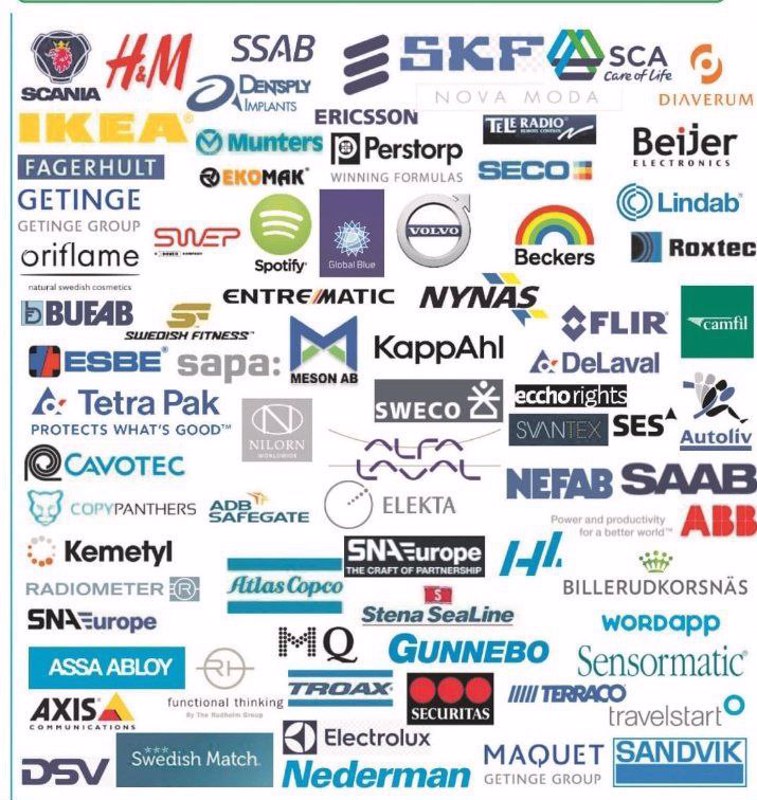
Say ‘No’ to Swedish products
Taking into account the Muslim population of 1.9 billion and Sweden's export-oriented economy, several Muslim countries, prominent organizations and individuals have called for a boycott of Swedish products as the most effective way to register their protest against Swedish authorities.
Mohsen Rezaei, the secretary of Iran’s Supreme Council of Economic Coordination, in his remarks on Sunday, urged the Muslim countries to boycott Swedish and Danish commodities.
Pertinently, days after the desecration of the Holy Quran in Sweden, an anti-Muslim group Danske Patrioter repeated the sacrilegious act on Friday in Denmark's capital Copenhagen.
They carried a banner with slogans against Islam, burned the Iraqi flag and a copy of the Quran under tight police protection after angry protesters stormed the Swedish embassy in Baghdad.
Rezaei called on Islamic countries to prosecute the perpetrators of the blasphemous acts and boycott the products of the two countries to prevent the recurrence of such ugly incidents.
The head of the Iranian Cinema Organization, Mohammad Khazaee, also announced that the participation of Swedish films in Iranian festivals will be prohibited now.
Last week, Egypt's Al-Azhar University issued a statement calling on the Arab and Muslim world to boycott all Swedish products, arguing that a materialist response is the only language Westerners understand.
The prestigious university called on religious centers and bodies worldwide to issue religious edicts obligating a boycott and urged the governments of Muslim and Arab countries to take a serious and unified stance towards it and to educate children, youth and women about it.
"The permission granted to these criminal terrorists to burn the Holy Quran represents a grave offense against Islam, religious rights, and humanity. It casts a shameful stain upon these societies, revealing their proximity to racism, disorder, double standards, and their remoteness from true freedom, respect for religions, and diverse peoples," read the statement.
Ansarullah leader Abdul Malik Badreddin al-Houthi and Hezbollah Secretary General Sayyed Hassan Nasrallah also made similar calls to break economic ties with Sweden.
"We must not be deceived by the Swedish and Danish [governments'] apologies, [because] they are not enough and these governments must prevent such abusive behavior," the Lebanese resistance movement leader asserted in his remarks on Friday.
Muhammad Sharaf al-Mutahar, Yemen's Minister of Industry and Trade, announced that Swedish products are boycotted in his country as a reaction to Western terrorism targeting Islamic sanctities.
Social media abuzz with boycott calls
Social media has also been abuzz with users denouncing the repeated incidents of insults to sacred Islamic sanctities and calling for the boycott of Swedish products.
“Muslim countries must unite in action against Sweden for desecration of the Holy Quran by all expelling Swedish ambassadors, cutting diplomatic ties. Muslim communities should boycott Swedish brand @IKEA to raise the price even more,” Hamidreza Gholamzadeh, Tehran Mayor’s deputy for international affairs, tweeted on Friday.
Roshan Salih, a UK-based journalist and editor of news site 5Pillars also took to Twitter to slam the repeated instances of the holy Muslim book being desecrated in Sweden and Denmark.
“Sweden and Denmark are racist, Islamophobic and uncivilised countries and no amount of reasonable argument can change the minds of unreasonable people. So we just need to hit them where it hurts - in their pockets. Total economic boycott of all Swedish and Danish businesses. IKEA would be a good place to start,” he wrote.
“I am choosing to not purchase any Swedish products or products from the related region. Moreover, I am no longer encouraging anyone to travel or study in Sweden for higher education, as many Bangladeshi students used to go to Sweden,” wrote a Twitter user from Bangladesh.
Another user from Kuwait shared an image of all prominent Swedish products and brands, with a caption that she will be boycotting them “in defense of the Holy Quran.”
“Shameful that Sweden takes freedom of speech as a reason for allowing desecration of holy books for different religions. This has to stop. Start boycotting Swedish products,” wrote another Twitter user.
Iran denies attacks on Oman as it warns of US-Israeli ‘false-flag’ ops
Iran knows where Netanyahu convenes his meetings: Ex-IRGC chief
‘Law of jungle’: China says Israeli-US aggression against Iran must stop
Iran says committed to regional security; retaliatory attacks only target Israel, US assets
'Blatant war crime': Iran denounces US-Israel strikes on Gandhi hospital in Tehran
IRGC spox: 650 casualties for US military in two days as Iran missiles force aircraft carrier to fle
Tehran warns of false-flag operations, says Israel ‘undoubtedly’ seeking to widen war
New wave of attacks devastates key US base in Bahrain as Iran strikes back


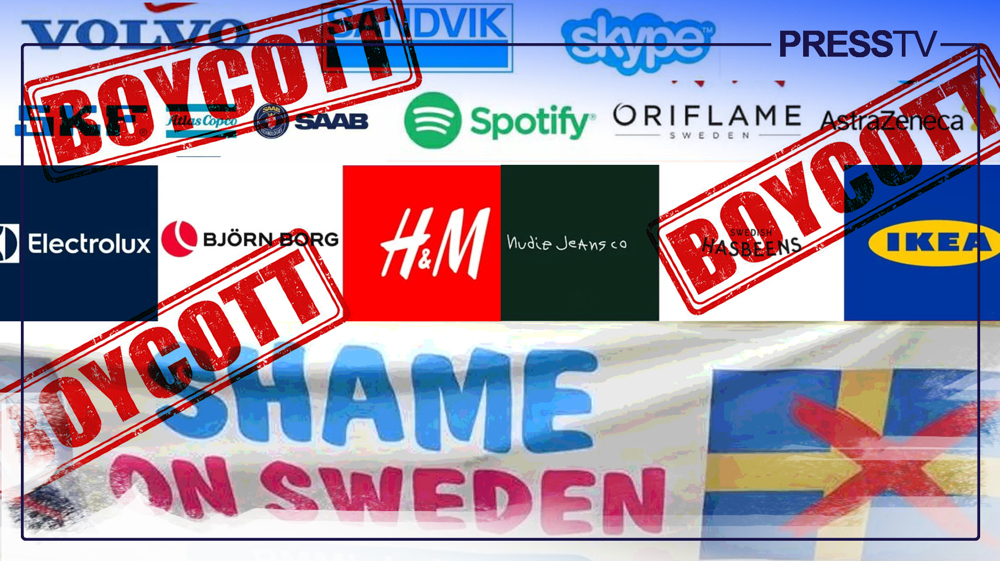






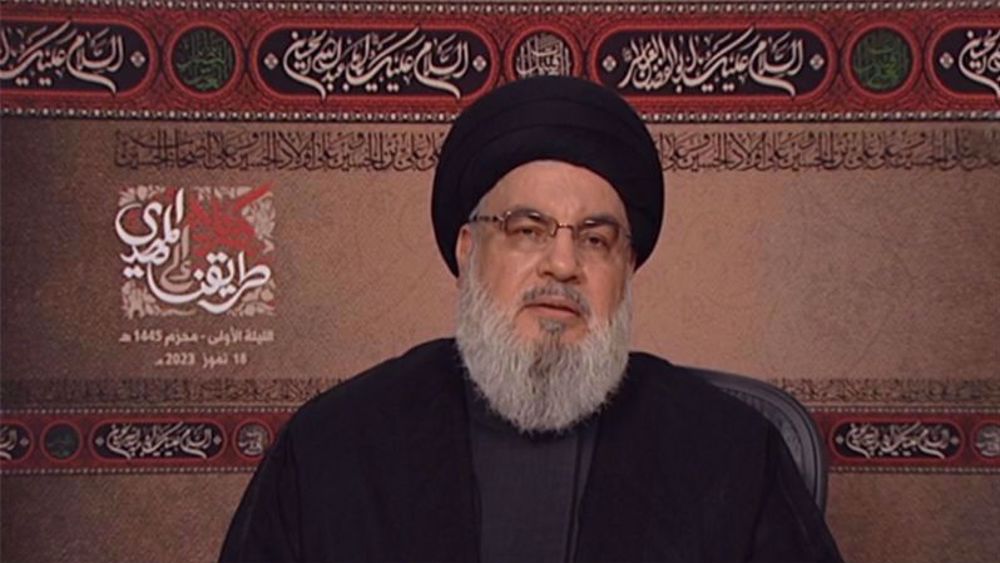
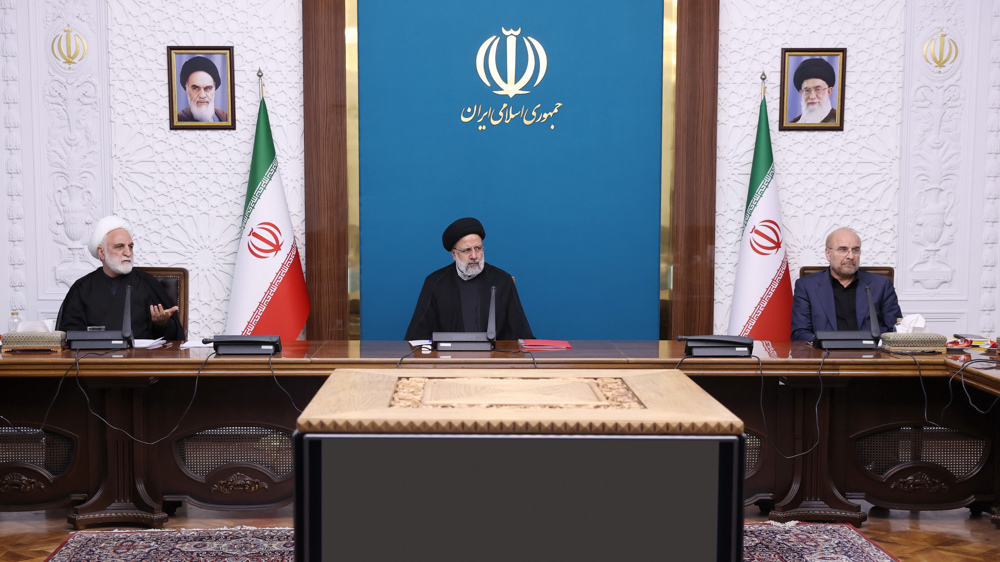
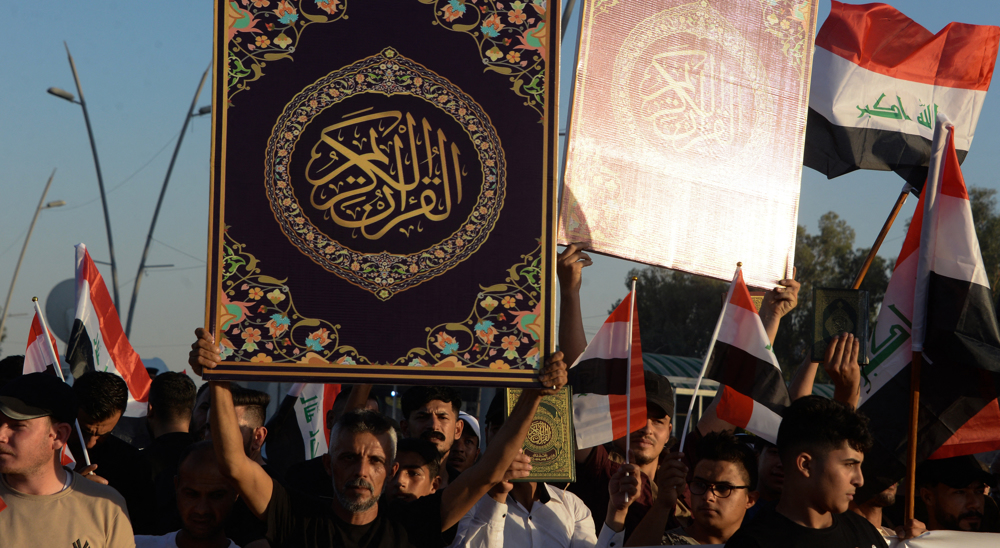

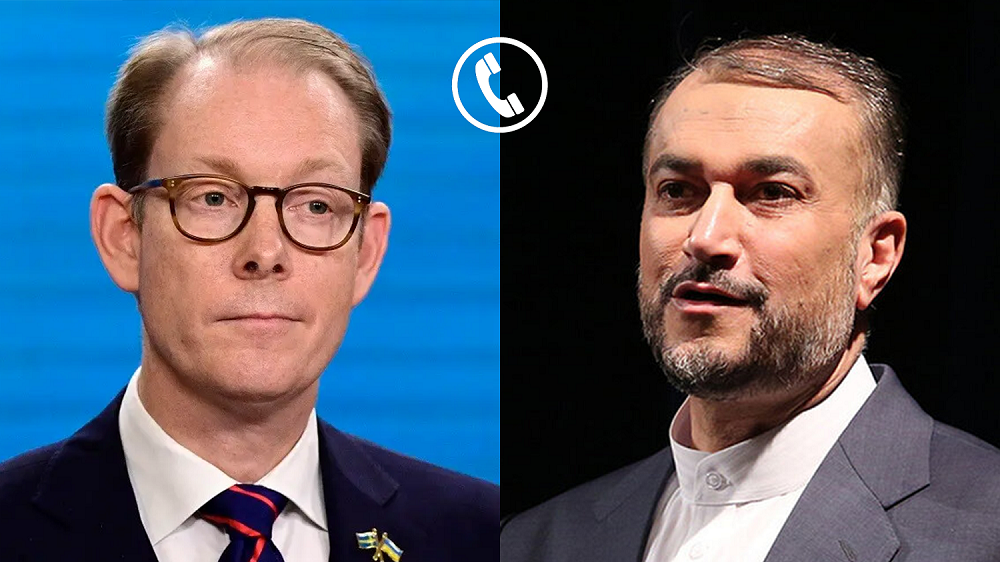

 This makes it easy to access the Press TV website
This makes it easy to access the Press TV website